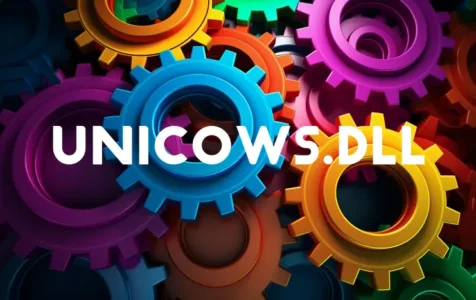UNICOWS.DLL, short for the Microsoft Layer for Unicode on Win9x Systems (MSLU), is a system file originally designed to enable Unicode support on Windows 95, 98, and ME operating systems. Unicode support allows software to use a wide range of character sets and languages. Essentially, this file helps older versions of Windows handle Unicode text, a standard for representing text in different writing systems, and lets them run applications that require Unicode.
Is It Safe to Run UNICOWS.DLL?
Yes, it is safe to run UNICOWS.DLL as long as it is the legitimate version provided by Microsoft. This DLL file is a system component that is critical for certain applications, especially those designed to be compatible with older versions of Windows. Downloading UNICOWS.DLL from a trusted source can resolve related issues without compromising system security.
Could It Be a Virus or Malware?
Like any file on your system, UNICOWS.DLL can be replaced or mimicked by a malicious version. However, the original UNICOWS.DLL file from Microsoft is not a virus or malware. It’s important to be cautious and ensure that the file has not been tampered with or altered by third parties. Always download DLLs from reputable sources or directly from legitimate software installers.
Common Issues Associated with UNICOWS.DLL:
Users may encounter various error messages related to UNICOWS.DLL, such as the file being missing, not found, or having been deleted. These issues can cause certain applications to fail to run properly. Problems with UNICOWS.DLL often stem from:
Expert Tip: For smoother PC performance, consider using a PC optimization tool. It handles junk files, incorrect settings, and harmful apps. Make sure it's right for your system, and always check the EULA and Privacy Policy.
Special offer. About Outbyte, uninstall instructions, EULA, Privacy Policy.
– Corrupted or missing files due to system changes or malware
– Outdated software trying to access the file
– Conflicts with other software
– Accidental deletion of the file
How to Fix Issues with UNICOWS.DLL:
1. Restore from Recycle Bin: If you suspect the file was accidentally deleted, check the Recycle Bin and restore it if found.
2. Reinstall Affected Applications: Sometimes reinstalling the program requesting the DLL file can resolve the issue.
3. Run a Virus Scan: To rule out the possibility of malware, perform a comprehensive virus scan on your system.
4. System Restore: If you recently made changes to your system, a system restore might bring back a working version of the DLL.
5. Update the OS: Ensure Windows is up-to-date, as some updates replace or repair system files like UNICOWS.DLL.
6. Consult Community Discussions: Engage with tech forums or communities for shared experiences and potential solutions.
7. Download and Replace the File: If necessary, you can download a fresh copy of UNICOWS.DLL from a trusted source and replace the corrupted one. Make sure to download the correct version for your system. It is critical not to download from unauthorized sites as they may offer infected or corrupted files. Always check for a legitimate source that offers a safe download.
8. Check Dependencies: The file may rely on other system files like OLE libraries, which, if missing or renamed, could be causing the error.
Conclusion
Understanding the role of UNICOWS.DLL in your system is important, particularly if you are dealing with older software or operating systems that depend on it for Unicode support. If you encounter issues with this DLL, carefully following the troubleshooting steps can assist you in resolving problems while keeping your system secure. When seeking help, engaging with online communities can be a valuable resource for finding solutions and getting additional support.
